When you think of Oladips, one might recall his undeniable talent in the Nigerian rap scene, but just as prominently, his name is often associated with controversy. Most recently, the “Lazarus” incident stirred the internet, but as with many things in life, the surface rarely tells the whole story. We had the opportunity to feature Oladips in ‘The Book,’ where he candidly opened up about his journey, the misunderstandings surrounding him, and his unwavering determination to speak his truth.
Like many artists, Oladips’ journey into music wasn’t planned. He started off participating in rap battles for fun, with no intention of turning it into a full-time career. In his own words, “I didn’t know I was going to turn out to be a recording artist or a rapper, you understand? I was just doing it for fun then, but I feel like that was where it started. One of my friends that liked the rap battle thing we were doing on Facebook invited me to a studio, and that was how I started recording.”
However, his breakthrough moment came when he won a competition hosted by Nigerian music icon, D’banj. This milestone led to him being discovered by his former record label, launching his professional music career.
Oladips’ career has not been without its fair share of drama. From calling out his former record label to declaring himself a better rapper than Olamide, and even faking his death—there’s no denying that controversy seems to follow him. But is it intentional? When asked about this pattern, Oladips is resolute, stating that he’s often misunderstood because he speaks his truth.
“When I said I was the best rapper, it’s because that’s how I feel, and that’s how it will be till the day I die. I feel like I’m the best rapper in the world. It’s not like I’m trying to disrespect anybody, and even in the tweet, I was like ‘no disrespect to the OGS,’ you understand? But they will not talk about that.”
He insists that his actions come from a place of honesty, and he’s not afraid to speak out, even against the biggest names in the industry: “Even if you’re the biggest artist in Nigeria and you did something that I don’t like, I will call you out.”
As our conversation progressed, Oladips revealed more about the frustrations he feels about his public image. One particular incident that shocked his fans and the wider public was when rumors circulated that he had faked his death. The backlash was swift, with many questioning his motives.
Oladips, however, shared a different side of the story. He recounted a near-death experience that led to this misunderstanding. “I had a near-death experience. I was sick, I almost lost my life, as a matter of fact. At a point, they said I was unconscious. This thing actually happened, but I mean, people will still believe what they want to believe. So that’s why I’m not even trying to stress it anymore.”
The timing of the incident coincided with the release of his album, Superhero Adugbo, sparking speculation that the controversy was a rollout strategy. Despite the noise, Oladips still holds the release close to his heart, stating that it was a significant project for him.
Oladips’ career has been a rollercoaster, filled with highs and lows, victories and lessons. As someone who has experienced both praise and criticism, he had some sage advice for others trying to navigate the complexities of the music industry. “Listen to your intuition, your instinct, your heart, and God will direct you.”
Looking ahead, he believes that Nigerian artists need better local support and called for the establishment of companies in Nigeria that offer advances to artists, reducing reliance on international labels.
For Oladips, his vision of success is clear. When asked what legacy he hopes to leave behind, his answer was emphatic: “I want to be remembered as the best rapper that ever held the mic, that ever existed in the history of Nigerian hip hop, number one.”
In line with this vision, Oladips revealed his next project—a forthcoming EP titled Lazarus, inspired by the latest controversies surrounding him. Through this release, he aims to set the record straight and share his side of the story.
Oladips’ story is one of resilience, passion, and a desire to stay true to himself, no matter the cost. While controversies have clouded parts of his journey, he remains steadfast in his belief that his voice matters. As he continues to evolve, it will be interesting to see how his music and message shape his legacy in the Nigerian music industry. With Lazaruson the horizon, one thing is certain: Oladips is far from finished.
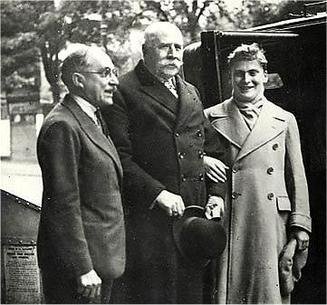
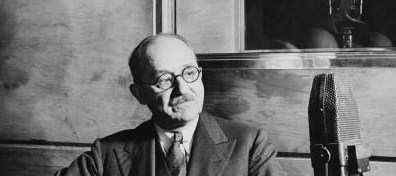
In the vast world of music, filled with artists, producers, and labels, one key figure often remains in the background yet plays a vital role in shaping the sounds we love: the A&R man. Short for Artist and Repertoire, A&R professionals are responsible for scouting talent, signing artists to record labels, and guiding their artistic development. But who was the first A&R man in the world? Let’s take a journey through music history to uncover the origins of this crucial role.
Before diving into the first A&R figure, it’s important to understand the context of the music industry in the late 19th and early 20th centuries. During this time, the invention of the phonograph by Thomas Edison in 1877 and the subsequent development of gramophone records revolutionized how music was consumed. For the first time, people could listen to recorded music in their homes, and a new industry began to emerge around the sale of these recordings.
As the industry grew, record labels like Columbia Records and Victor Talking Machine Company became the early giants. These companies needed someone who could both identify fresh talent and ensure that the recordings would appeal to the public. Thus, the concept of A&R was born.
Though the title “A&R man” wasn’t officially coined until later, Fred Gaisberg is widely considered to be the first person to fulfill this role. Born in 1873 in Washington, D.C., Gaisberg had a passion for music from a young age. He was a skilled pianist and became one of the earliest recording engineers in the world.
Gaisberg’s career began in the 1890s when he started working for the Gramophone Company in London, which would later evolve into EMI Records. At the time, recording technology was still in its infancy, and the process was far from what we know today. Early recordings were made using mechanical techniques, and the sound quality was limited. Despite these challenges, Gaisberg was instrumental in shaping the future of recorded music.
What made Gaisberg unique was his dual role as both a recording engineer and a talent scout. He didn’t just sit behind the recording equipment; he actively sought out artists who could create music that would resonate with the public. In this way, Gaisberg became the world’s first A&R man, combining his technical expertise with an ear for talent.

One of Fred Gaisberg’s most notable contributions to the music world was his discovery of Enrico Caruso, the Italian opera singer who would go on to become one of the most famous recording artists of the early 20th century. In 1902, Gaisberg traveled to Milan, Italy, to persuade Caruso to record for the Gramophone Company. Though Caruso was initially hesitant, Gaisberg convinced him to make a recording, and it was an instant success.
Caruso’s recordings became best-sellers, and he is now remembered as one of the first global music stars. This moment not only solidified Gaisberg’s reputation as a visionary but also marked the beginning of the modern record industry, where A&R professionals played a crucial role in connecting artists with audiences.
Fred Gaisberg’s career spanned several decades, and his impact on the music industry cannot be overstated. He traveled the world, recording a diverse range of artists from different genres and cultures, laying the foundation for the globalization of music.
While Gaisberg’s title wasn’t formally “A&R man” at the time, he embodied the role by scouting talent, overseeing recordings, and helping to shape the artistic direction of the artists he worked with. His pioneering efforts paved the way for the formalization of A&R departments within record labels.
In the years that followed, the role of A&R evolved, especially with the rise of rock and roll, pop music, and later hip-hop. Figures like **John Hammond** (who discovered artists like Billie Holiday and Bob Dylan) and Ahmet Ertegun (co-founder of Atlantic Records) continued Gaisberg’s legacy by shaping the musical landscape of their eras.
Fred Gaisberg was more than just an early recording engineer; he was a visionary who understood the importance of artist development long before the term “A&R” became commonplace. His work laid the groundwork for what would become one of the most essential roles in the music industry.
Today, A&R professionals continue to scout new talent, shape artistic visions, and connect musicians with audiences, all while standing on the shoulders of pioneers like Gaisberg. From the discovery of Enrico Caruso to the global spread of recorded music, Gaisberg’s contributions remain a cornerstone of the music industry, and his legacy as the first A&R man lives on in every hit song we hear today.
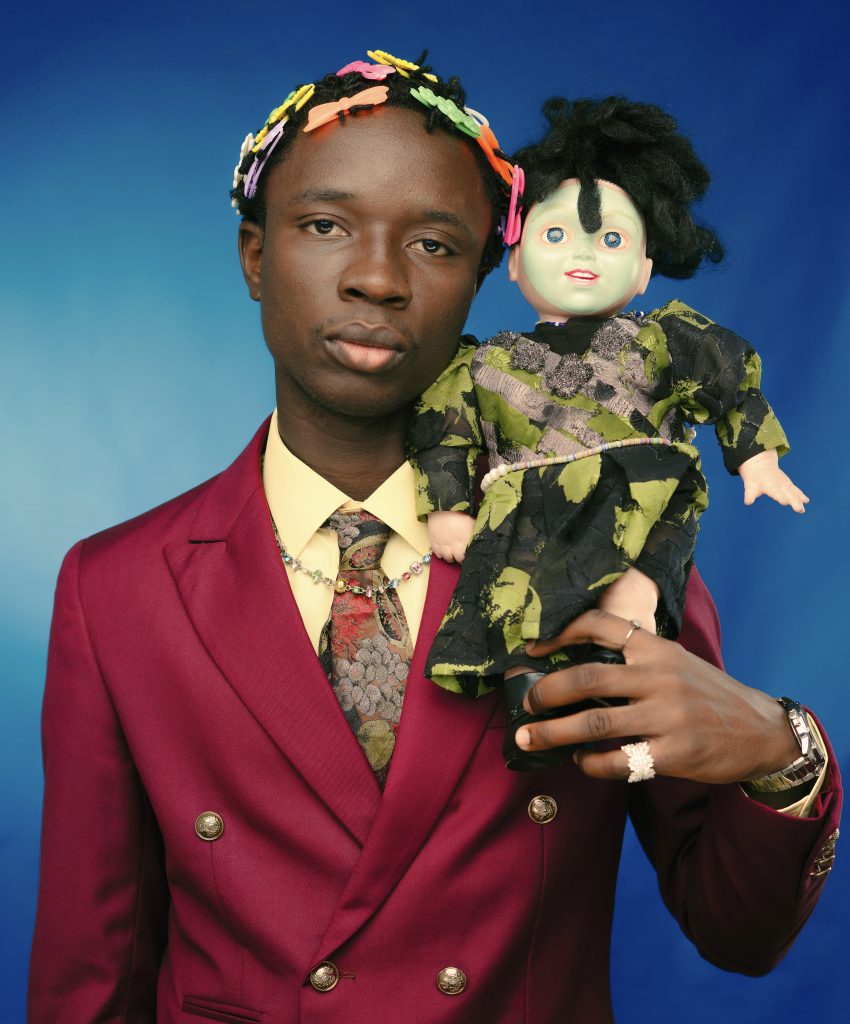
Last year, I had the pleasure of interviewing FirstKlaz, and I can confidently say it’s been nothing short of inspiring to witness his meteoric rise since then.
For those unfamiliar with him, allow me to introduce an impeccable creative genius and versatile artist—FirstKlaz is undeniably one to watch.
His journey has been fascinating, marked by his groundbreaking social media content, out-of-this-world storytelling techniques, and the development of genre fusions that seem almost unimaginable. His prowess is unmatched, and it was a privilege to delve into the mind of such a visionary artist.
Our conversation began on a light and friendly note, with FirstKlaz exuding positive energy and a contagious spirit. We even shared a moment reflecting on what had been a particularly stressful week for both of us.
If you know FirstKlaz, you’re likely aware of his controversial social media presence and the lengths he goes to promote his craft. I asked him how he manages the demands of this. “It’s a lot. Most people don’t know the amount of work that goes into bringing those contents to life. It’s crazy, but I can’t complain,” he revealed. And guess what? We might someday get a masterclass on content creation from FirstKlaz himself—fingers crossed!
FirstKlaz has released several tracks where he introduced fresh sounds, such as Gen Z Fuji, Gen Z Fuji II featuring Terry Apala, Gen Z Faaji featuring Joeboy, and Gen Z Arewa. Notably, in promoting Gen Z Fuji II, he spotlighted Aunty Ramota, a move that was as endearing as it was clever. When I asked what inspired these tracks, he explained that he wanted to blend old-school genres with new-school melodies and lyrics that resonate with Gen Z, hence the recurring title. How did this idea come about? “To be honest, I’m a deep thinker. I feel like while everyone around me sees things with their normal eye, I have a third eye. I like to be green while others are red,” he shared, offering a glimpse into his unique creative process.
It was clear that thinking outside the box was second nature to him.
We discussed how he managed to collaborate with artists like Terry Apala and Joeboy. “I’ve known Terry Apala for close to a year now. I made a freestyle and promoted it by mimicking bigger artists like Olamide, Burna Boy, and Jeriq. The first one I did was of Terry Apala, and it blew up. He then reached out to me, saying he was impressed. So when I did Gen Z Fuji, he reached out again, asking me to send him the beat, and that’s how Gen Z Fuji II came to be. With Joeboy, it was a similar story. We’ve known each other for about a year, and he’s surprisingly mentioned me in some interviews. I was just doing my thing, and people were watching.”
FirstKlaz recounted how he and Joeboy became acquainted. “When I posted that freestyle, he reposted it on his story. We eventually connected, and when I dropped the first and second verses of the song, Joeboy told me he liked it. I was in the studio when he sent me that message, and I was like, ‘Big bro, can you please give me a verse?’ and he said, ‘Why not?’ In less than two days, he sent it.”
As we delved deeper into who he is as a person, FirstKlaz opened up about where he draws his inspiration. “I like to do things the way I feel in that particular moment. I don’t drink or smoke, but if I want to be in that zone, I can be there without any influence. Sometimes I feel like I have a talent for zoning out to any zone I want to be in.”
He also spoke about his motivation and background. “Where I come from and my family. I grew up in a crazy part of Abuja, Yanyan,” he explained, likening it to a box. “There’s an OG every youngin wants to become. It’s like we didn’t know any life outside the box. I thank God for the secondary school I went to, where I mixed with the rich kids. My parents spent all their money on my education, and that’s when I realized there was more to life than that lifestyle.”
He fondly recalled a particular girl he met during his secondary school days, Amanda “She changed my mindset.”
Folks! there you have it the person who inspired the name of his popular signature piece, his doll ‘Amanda’.
FirstKlaz recently debuted a new hairstyle, inspired by none other than Frank Ocean. “I was on my Afro and didn’t know what to do with it. The day I was thinking about going to the salon to cut it, I saw a picture of Frank Ocean, and then I told my neighbor to help me plait my hair like that.” This ties back to something he’d mentioned earlier: “I like to do my things organically.”
When it comes to handling critics, FirstKlaz maintains a positive outlook. “If everyone loves everything you do, then you have a problem. A lot of times when I post stuff, I get hate comments, but when it starts blowing up, the same people who criticized come back praising the song.”
Looking ahead to 2025, FirstKlaz has big plans: “I’ll be everywhere, not just Nigeria or Africa—I’ll go global.”
In an interesting revelation, FirstKlaz shared that his real name is Justice Elsa Joseph—a detail he tends to keep under wraps (though I might just be the first to document it!).
During our chat, he spoke about how his family motivated him, especially his older brother, who was the first to believe in his craft and sees him as a global artist. “He made me start believing it more.”
Fun fact: FirstKlaz loves to draw, paint, and has a passion for fashion. And here’s something new—he’s a fan of toys, particularly his fidget spinner and action figures.
But his journey hasn’t been without struggles “There was a point when I was feeling like nothing, I started doubting myself and everything I was doing.” This brought him to share a story of when he put out a freestyle to a song and it blew up. He’d shown his friends and nobody liked it but he put it out like that and it took a few days but it blew up all of a sudden “I saw my phone vibrating. That was the first time I saw my phone like that, getting that amount of buzz. I was using one iPhone 6, and half of the screen wasn’t working. I wasn’t even seeing anything with half of the screen so I had to turn the phone to check what was happening”
He talked about how he felt before putting out that freestyle “When I put it out and didn’t get engagement I felt bad somehow because my friends were like ‘I told you this stuff was not mad’ but still I said Omo I don’t have anything to lose, I wasn’t concerned with engagements and I was just doing my thing. The freestyle was everywhere and the artist had to do an open verse for the song but he didn’t post my version though.”
As for his future collaborations, FirstKlaz dreams of working with Kanye West, who he feels shares a similar mindset, Frank Ocean, and in Nigeria, Rema and Asa.
He left a powerful message for other emerging artists: “Be yourself, walk with God, and don’t take no for an answer. I got a lot of no’s, but I kept moving. People told me to my face that I would never blow, but I just kept moving.”
As our conversation drew to a close, I asked FirstKlaz how he felt after reflecting on his journey. “I thank God for where I’m at today, but I still feel there’s a lot I need to do. I’ve not even started; I just need to keep the fire and keep it going.”
FirstKlaz’s love for music shines through when he speaks about the songs that resonate most with him—Rema’s Calm Down and Burna Boy x Jorja Smith’s Gum Body.
As he continues to push boundaries and redefine what it means to be an artist in today’s world, one thing is clear: FirstKlaz is just getting started.
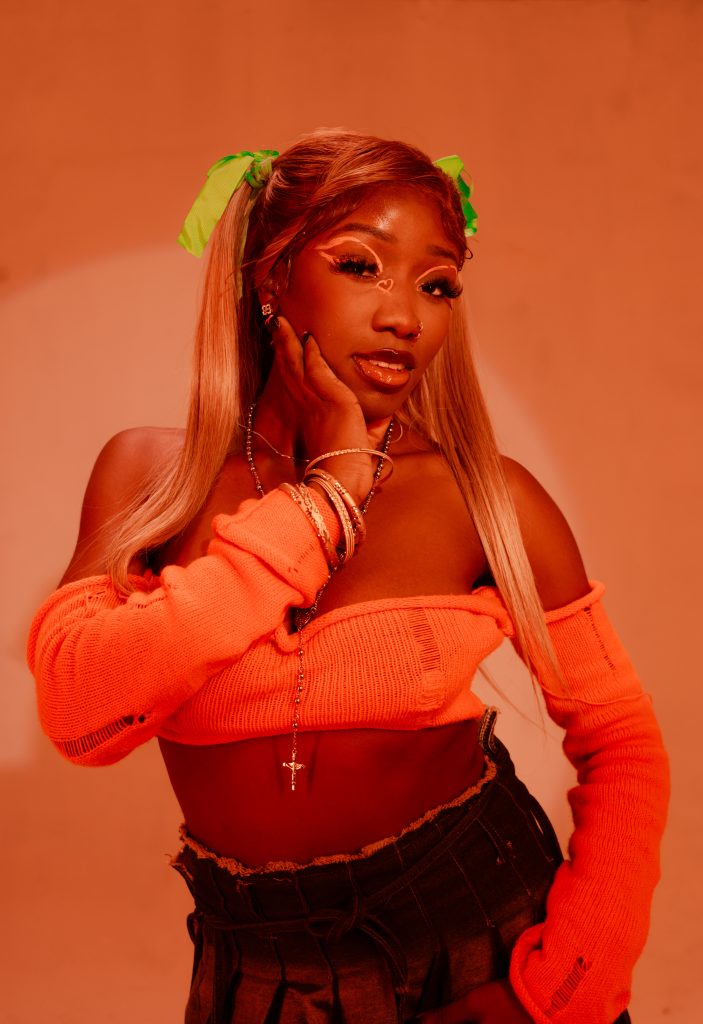
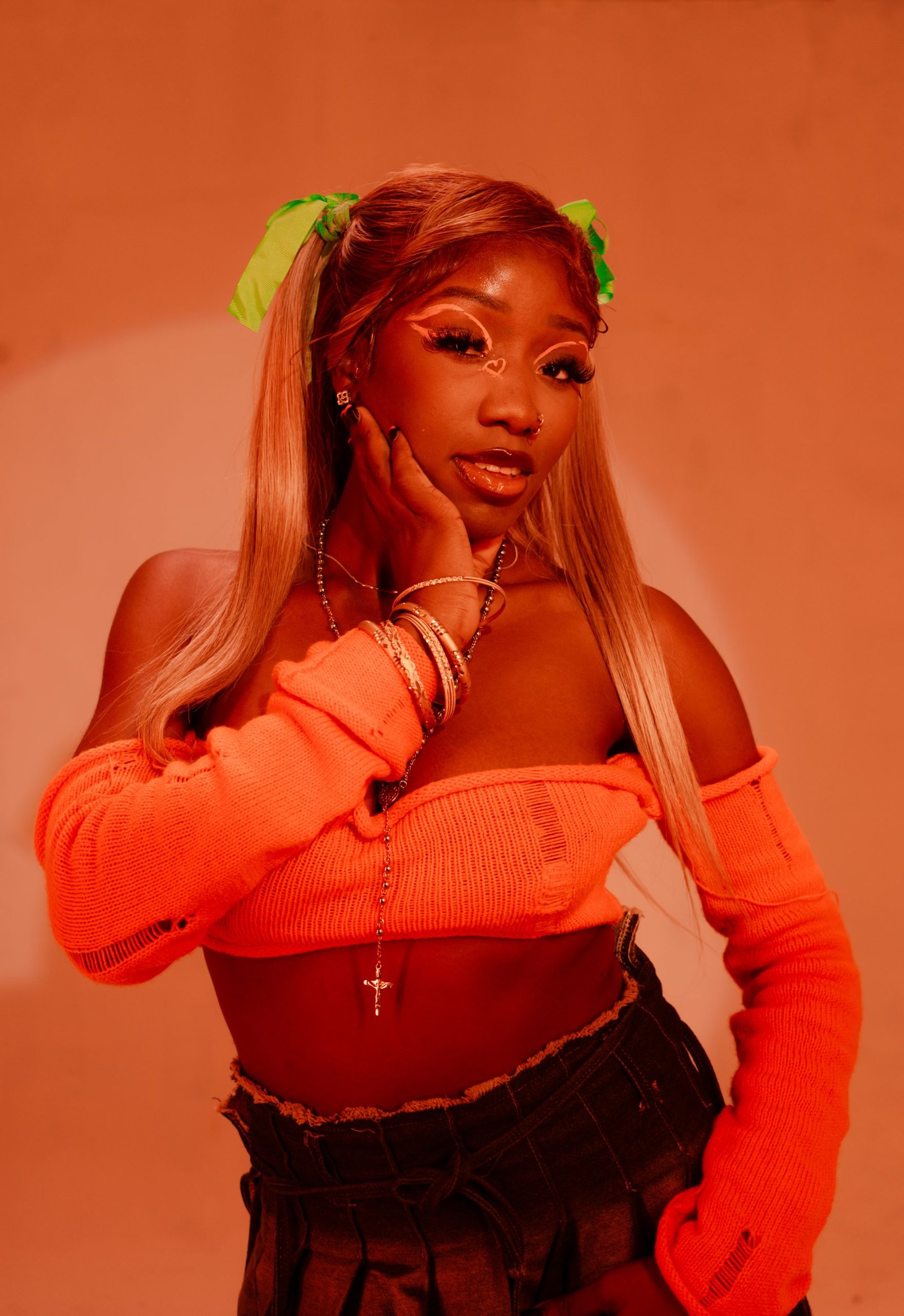
Mbadugha Pearl Kosisochukwu, popularly known by her stage name “Kohsea,” is a Nigerian female R&B/Afrobeats artist.
It was a hot Sunday afternoon, the weekend after Kohsea returned from her trip to Port Harcourt for her dad’s burial, back to Lagos.
The conversation started vibrantly. Kohsea was open and in high spirits, although she began by saying she was in a dark place and needed self-recovery. “I’m an independent female artist who hasn’t exactly gotten her big break, and right now, it’s testing my patience, my faith… This is just that moment when you know you cannot give up. I know there’s potential here, I have something to give to the world, but I must find the best way to deliver it.”
Kohsea talked about her branding, how she is trying to figure out her brand, and how to properly position it. She seemed conflicted, and we had a chat about it. Despite her struggles, Kohsea is hard to miss. She carries herself with such power that the Gen-Zs would say, “She is who she is.” From the way she speaks to her lifestyle, artistic style, and overall energy and aura, you can’t afford to miss Kohsea in a room. I first encountered her at Hitsound’s Guinness World Record attempt, and I would say it would be difficult to tell her apart from an A-list celebrity. She’s an artist one could say was born to do music.
So far in my conversation with Kohsea, one thing was evident: her hunger for growth. “I have shown people a phase of Kohsea, and I feel my listeners and supporters are looking forward to the next thing Kohsea is going to do,” she said. “As an artist, you can’t keep giving rice and stew every time you’re serving; you need to switch things up,” she explained. She mentioned she is open to working with more people—producers and all—to broaden her exposure and get inspired.
She recounted how she’d put herself under pressure and was finding it difficult to get inspired enough to make music. “I was in the studio, and for three days we were finding it difficult to make music, and it got us under so much pressure because we wanted it to work.” This pushed her to try and relax; she’s gone out and tried to de-stress, and so far, it has helped her feel lighter.
Kohsea talked about her current vision: “The phase I’m in right now as Kohsea, my music and brand, I just want to give the world better; I want to deliver the best of what I can create.”
Kohsea is known for her lyrics about heartbreak and love. She wears the persona of a “baddie,” and in this interview, I asked her to explain it all. She said, “You know how you look for what you don’t have. Growing up as a young girl, I can’t say I’ve experienced what true love is from the opposite sex—only in the movies. I live in a delulu world.” Kohsea explained how she is a lover girl at heart and has a lot of love to give despite being hurt. She explained the lyrics of her song “Need You,” expressing how she is ready for love and speaking to a boy she likes, asking him to make things work between them. “I’m tired of the bare minimum. The bare minimum never gets you the best experience of love.” She explained that this was also what inspired “Deep Freezer,” written after her breakup. She addressed the part of her being a “baddie” as just her style and how she likes to dress.
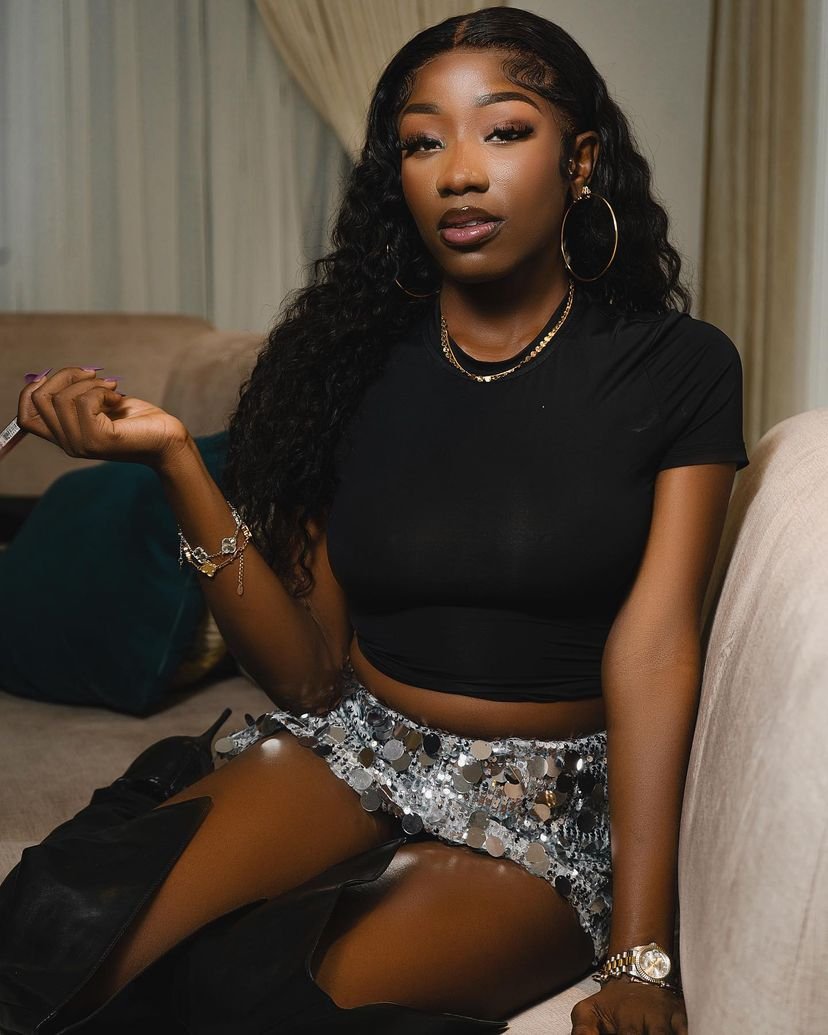
She went on to say that in her future songs, she’d be bringing something fresh and vibrant, something new. “I’m trying to bring the spice in the ice. No more sad Kohsea that sings heartbreak songs. I want to focus now,” she jested.
Kohsea talked about how she found her sound: “I listened to a lot of white artists while growing up, so this influenced my style a lot. I did a lot of competitions, and I was in the choir. For the longest time, I didn’t know what genre I was singing, and it was people who pointed out that my style seemed foreign. This helped me not put myself in a box because I was just singing on the beats for the longest time.”
We also discussed her fanbase, called “Planet K,” and how she wants to put out a body of work to properly explain her vision.
Kohsea explained how important music is to her. She moved to Lagos from Port Harcourt after university to chase her music career. This was after sneaking around to make music back in Port Harcourt, where she mentioned going as far as blocking her family from her socials, considering that she was sent to medical school. Coming out to say she wanted to do music was not going to go well. Fast forward to her moving to Lagos: she got her family on a call and told them about her plans to pursue her career as an artist. This was in 2022. She said the price she had to pay was her parents telling her that if she chose that path for herself, she couldn’t call home for anything, and she stuck to it. “If disobeying my parents is not enough reason for me, then I don’t know how important music is to me,” she added. She talked about the expectation placed on the girl child to stay with her parents until she gets married, and how she had to break out of the norm.
Kohsea talked about when she realized she wanted to do music. She was in her final year at the university, and she had the option of chasing her dream of doing music or going abroad for her master’s, which might have been the end of her dream. Going abroad to study costs a lot of money, so it would have been difficult to explain to her family that their resources had gone to waste. That was when she made the decision she made. She seemed content when she said, “Do you know what’s up, Andrea??? They see me now. I was at my dad’s burial, and I was told to sing. I was in shock, but it was all so wholesome because I fought for this, and now they all want it to happen as well. I’m in my ‘not giving up’ phase.”
Kohsea explained the jump between studying a medical course and chasing her career as an artist: “It felt impossible. Dropping out felt like a better option, but I had to discipline myself.” She mentioned that at some point, she was in conversation with a top stakeholder in the industry, and while it felt like an alignment, she wasn’t ready because she was held back by fear. “I had to conquer fear and self-doubt.” She talked about the opportunities she’d gotten to perform on stage when Omah Lay was in Port Harcourt. Dandizzy had also given her a spotlight on his stage. She talked about how she got the opportunity to perform in places she didn’t expect and how it all felt like an alignment. She mentioned that there were a lot of signs, and it took a while before she was bold enough to embrace them.
Kohsea described her happy place as being within herself.
We took a walk back through her background and how it influences her as a person and her lyrics. She said that while she grew up with tough love and had misunderstood it at the time, it made her yearn to be loved by the opposite gender. But as she grew, she started to understand the approach and realize it wasn’t because she wasn’t loved—it was just their way of expressing their emotions. “I’m trying to walk away from my trauma and bad habits I picked up while growing up. I want to come out of it and bask in true love.” She jested about how PH (Port Harcourt) pidgin is, and when she has to speak it: “PH pidgin comes with authority.” She teased that she has a song that brings out her spirit as a PH babe!
We talked about male domination in the Nigerian music industry and the struggles. She pointed out that women used to be so afraid. It used to seem like the industry didn’t support women, but it was more from a place of fear, and the ones who dared, got backlash. She mentioned names of ladies in the industry who have dared to do things their way, and she expressed her respect for them. “There’s space in the industry for women.” She recounted what someone had told her. For Kohsea, her only struggle is getting investments.
Kohsea used to organize singing competitions back in secondary school. She attended an all-girls school and was quite extroverted. “I used to get called to sing at the parties of my classmates, and I’d get paid with their provisions or dinner that night” So apparently, music had started paying me before I knew I could make money off music,” she jested.
She talked about how she started organizing talent shows with other girls who knew how to sing when she was in SS3. “Funny enough, I never won any of these competitions despite being an organizer because there were so many other talented girls. I believe this was one of the things that shaped me.”
Kohsea mentioned she’d worked at a club after moving to Lagos, where she worked as a bottle girl. It was her way of making ends meet and funding her music.
Kohsea has been putting music out officially since 2020. She recounted how she almost signed a messy deal with an independent artist that would have cost her a lot, but she was saved by an Entertainment lawyer, Akinyemi Law who was fighting against bad deals in Nigeria. She described him as God-sent.
Kohsea had so much positive energy and Insightful Information to share. She is a powerhouse of knowledge and she knows who she is.
Kohsea said she plans to release two more singles before the end of the year.
Kohsea talked about the high charges by producers which forced her to learn how to record herself.
Kohsea said a milestone for her is to achieve 100k streams on her song before the end of the year. “It seems achievable and I’m working towards it.” “I also want to work with A and B list artists and also to be on the Ijoya playlist” She mentioned that she wants to build a strong team with people who genuinely have her back.
Kohsea said the most fulfilling part of her doing music is having something to offer and having a way to impact the lives of other people. “I like the fact that music is shaping me into the woman I’ve always wanted to become.”
“I want to chase my dreams. I am talented”
Kohsea encourages every woman to fight for what they want. “Music found me and changed my mindset, it saved my life.”
As we came to the end of our conversation, Kohsea sang a line from her favorite line from her favorite song ‘Free Mind’ “This is the peace that you cannot buy…..” to her it brings the feeling of elevating and being light weighted.
She shouted to A&R Duty to close our chat for being the real deal.
Written by Andrea Andy – 28 Aug 2024
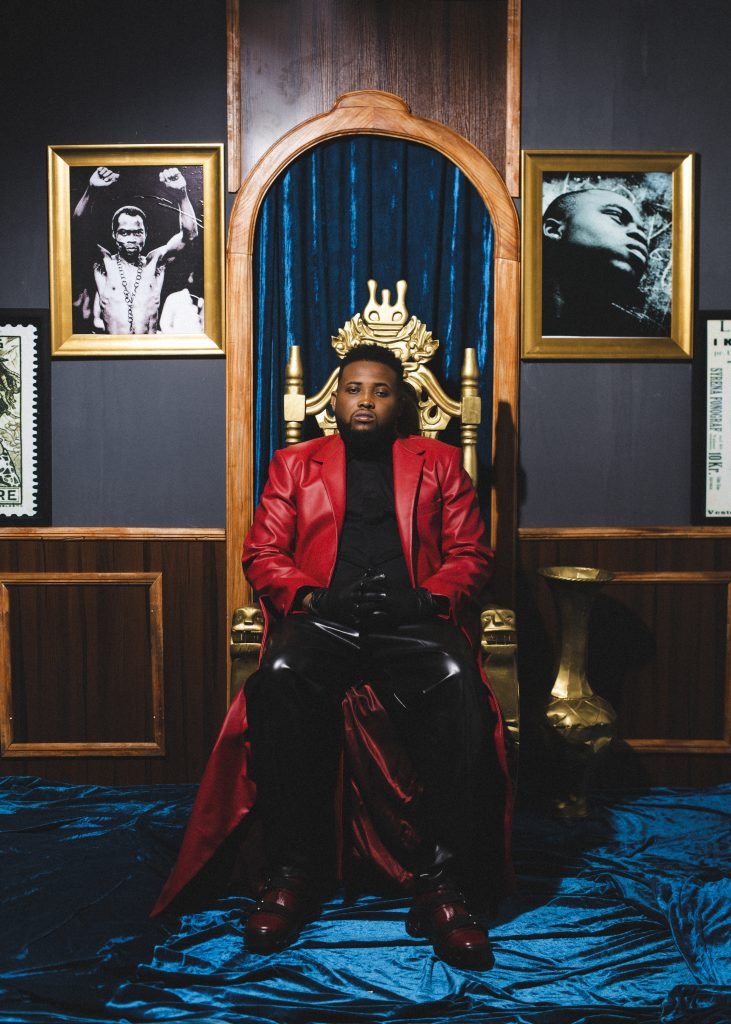
Nigerian rap sensation Chinko Ekun has long been hailed as a master of his craft, weaving intricate lyrics and infectious beats into a signature sound that has captivated audiences nationwide. But beneath the surface of his chart-topping hits and sold-out shows lies a complex and deeply personal artistic journey. In a rare and intimate conversation with A&R DUTY, Chinko Ekun pulls back the curtain on his creative process, sharing the inspirations, challenges, and triumphs that have shaped him as a person.
“The Book”. Conducted by Andrea Andy, this exclusive interview offers an unparalleled glimpse into the mind of a true creative genius, revealing the passion, perseverance, and dedication that have solidified Chinko Ekun’s position as a leading voice in Nigerian music.
I engaged Chinko Ekun in a chat about his journey and plans for the future regarding his career moving forward.
Chinko Ekun stands out—a vibrant soul with an energy as infectious as his lyrics. In speaking to Chinko Ekun I encountered a man brimming with positivity, a “ray of sunshine” as I quickly realized during our conversation.
Chinko’s journey from studying law at Obafemi Awolowo University (OAU) to becoming an award-winning rapper was far from a walk in the park. “It’s been rough around the edges…but I’m grateful for the support from my family and meeting good people,” he reflected with unmistakable humility. This humility anchors him as he navigates the choppy waters of the Nigerian music industry. For Chinko, the strength he derives from his support system is more than a safety net; it’s his driving force, a source of pride that fuels his relentless pursuit of success.
Chinko boasts about the support system he gets from his parents “My dad used to pay for my studio sessions”. He shared a story of how he got scammed once by a guy who promised to play his songs for an artiste he idolized, Jesse Jagz. “He has asked me to pay him 95k, this was in 2012 2013, I’d gone to my Dad to ask for the money. He wrote me a cheque for 100k to support me, the 5k was for my transport. I never heard back from the guy after giving him the money.”
As our conversation deepened, Chinko Ekun shared a guiding philosophy that has steered him through the highs and lows of his career: “No matter how good a product is, it takes the right people to market it,” he emphasized, underscoring the importance of teamwork. “I met people along the way who helped me amplify my craft.” Chinko’s gratitude extends beyond mere words—it’s a testament to the “God-given talent” he cherishes and the people who have stood by him.
Before he became known for his rap, Chinko Ekun explored several other talents. He played the drums in church, where he was quite well-known, and even dabbled in dancing—a talent he humorously admitted he no longer possesses. Interestingly, he also used to chant before he began rapping.
Despite setbacks in his career, Chinko Ekun spoke only with a deep appreciation for the lessons learned, with no trace of bitterness in his voice. When I asked about his early days posting freestyles on Instagram, as far back as 2011, he reminisced about just wanting to showcase himself online when the app only allowed 15-second videos. Chinko describes himself as a “soft, cool sweetheart,” a stark contrast to the fierce alter ego that emerges in his music.
One unique aspect of his style is the infusion of fake Chinese into his rap, a tactic he used to stand out. “Till today, if you rap in Yoruba and infuse Chinese, you’d be under my shadow,” he said with a hint of pride. His stage name, “Chinko Ekun,” has an interesting backstory. Before adopting this name, he was called Chun Li in secondary school because of his Chinese-like appearance, which eventually evolved into Chinko. Not wanting to lose these identities, he fused them, inspired by his 2013 debut song “Ekun.”
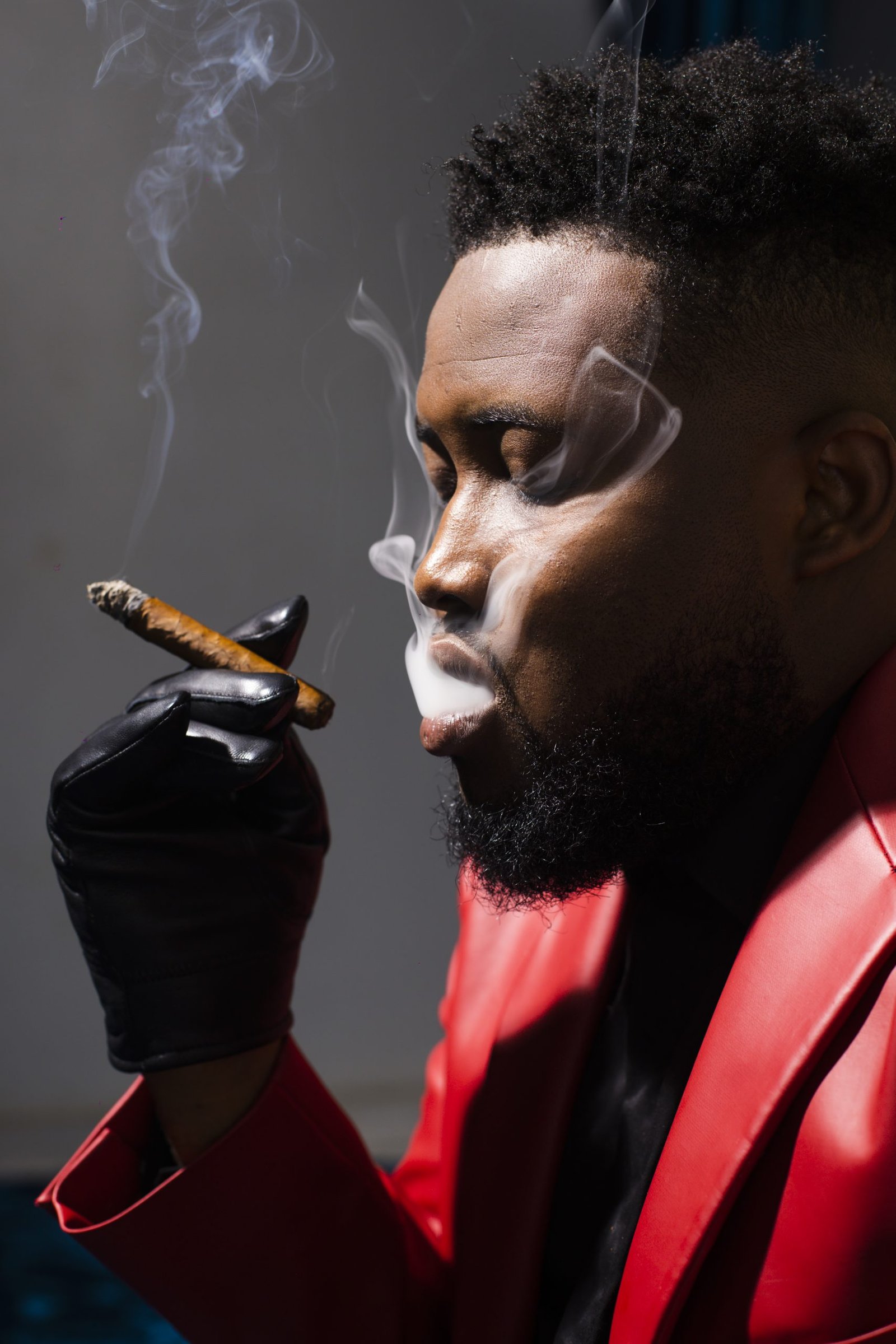
One thing became clear throughout our conversation: Chinko Ekun is fiercely passionate about his craft. He eagerly wants people to hear him rap, considering himself a fierce rapper. Reflecting on the moment he won an award for “Able God,” he felt a deep sense of accomplishment. “I was given that award by one of my icons, Reminisce. I felt fulfilled. It was a moment to make my parents proud,” he said. When I asked if he was able to sleep after receiving the award because I knew I would be bubbling with way too much energy to do so if I was in his shoes, he humorously admitted, “Meeee??? I love my sleep o.” Alright, Chun Li! I guess we do not have that in common.
Chinko Ekun shared a memorable experience at the Headies Awards, where two years before winning, he had wished to be on that stage. “God listens, and it’s good to work,” he remarked, reinforcing his belief in hard work and faith.
We also touched on his “Jaga Jaga” cover, a rendition of Victony’s single that shook the internet. Chinko had much to say about his journey in the industry and the mistakes he’d made, but he mostly laughed about it. He enjoys painting his perspective on every song he listens to, even though he was initially hesitant to record the cover. “I won’t lie, I removed a lot of it…When I was done recording, I sent it to Zlatan. He wanted me to put it out and even offered to send me his video director just so I would shoot the video. I can’t lie, I felt emotional while shooting the video, and when I dropped the cover, Victony had to reach out to make sure I was good,” he recalled. Chinko took pride in owning up to his “B.S.,” as he put it, and hinted that he would speak more on that part of his journey in the future, probably through a body of work.
In 2022, Chinko Ekun released “Indoorstrict,” a project that received mind-blowing comments but strangely didn’t reflect in streaming numbers—a commentary on the consumption of rap in the Nigerian music industry. Reflecting on his over-a-decade-long journey, Chinko has gained a deep understanding of how the industry works. “I know you can paint pictures through your words, and that’s what I did on Indoorstrict. It was a risky dare because a lot of people do not like to own up and talk about what they are going through,” he explained. The project resonated with many, garnering over a thousand covers from people eager to share their own stories.
Chinko’s passion for nurturing emerging talent was evident when he pondered the challenges faced by young rappers in various parts of Nigeria. “To an extent, some of us were able to make a little success and fame via the rap genre, but now that it’s on the lower side, what is the fate of a younger rapper just starting in Benin, Onitsha, Anambra, Ogun State? Do they switch?” he asked, a rhetorical question highlighting the difficult choices faced by upcoming artists. The song was initially six minutes long but had to be shortened—a decision that speaks to the depth of his message.
Gratitude is a recurring theme in Chinko Ekun’s life—gratitude for his talent, which puts food on his table, and for the good people around him. His love and appreciation for God, his family, and his supporters are qualities I greatly admire. Fun fact: despite his fiery stage presence, Chinko Ekun is quite introverted. He candidly discussed the struggles of juggling school and his career as an artist, as well as the things he has seen in the industry.
“The industry is a challenging environment; you just need to know how to navigate it. It’s full of users—I was taken advantage of a couple of times,” he revealed.
As our chat drew to a close, I asked Chinko Ekun how he felt about his journey thus far. “No single regret, only life lessons. I’ve learned, I had to learn the easy and hard way. I feel like I’ve grown,” he said, reflecting on his personal growth. Then, he made a surprising announcement: “I’m moving to the business side of music. It’s been a journey where I’ve been able to own up to my mistakes, and I want to make sure the upcoming ones do not go through the same things.” Chinko Ekun reflected as our conversation drew to a close. It’s this growth that now drives his shift from the spotlight to the business side of music. With a decade of experience under his belt, Chinko is determined to ensure that the next generation of artists doesn’t have to navigate the same pitfalls.
Chinko’s plans for the future are ambitious and exciting. “I’ve taken like two years of my life to understand how the music ecosystem works. I’m on the wave of being able to liaise between every important creative in the music ecosystem and also monetize it,” he explained. A milestone for him is winning a Grammy and bringing up talents that would add to his purpose in life. “Success is not just about making money; it’s about the lives you’ve touched and what people will say about you when you’re gone and even when you’re there.” he shared, his voice brimming with purpose. For Chinko, success isn’t just measured by accolades or wealth, but by the lives he touches along the way.
Chinko Ekun is driven by a desire to help younger artists reach their dreams. His advice is both practical and inspiring: “First, believe in yourself. You have to believe that you can do it; if you doubt, you will see more reasons why you can’t, but if you believe, you will see reasons why you should do it amidst challenges and obstacles. You have to grow and you have to learn, even if it costs you getting mentorship. You need to understand that you will crawl before you walk. Vector once said to me, ‘Most people want the result, not the process, but they fail to remember that you don’t build a house from the ceiling.’” Chinko holds on to this wisdom, a reminder of the power of process.
As he steps into this new phase of his career, Chinko Ekun’s journey is a testament to the power of belief, perseverance, and the willingness to learn from every experience.
Written by Andrea Andy – 16 Aug 2024
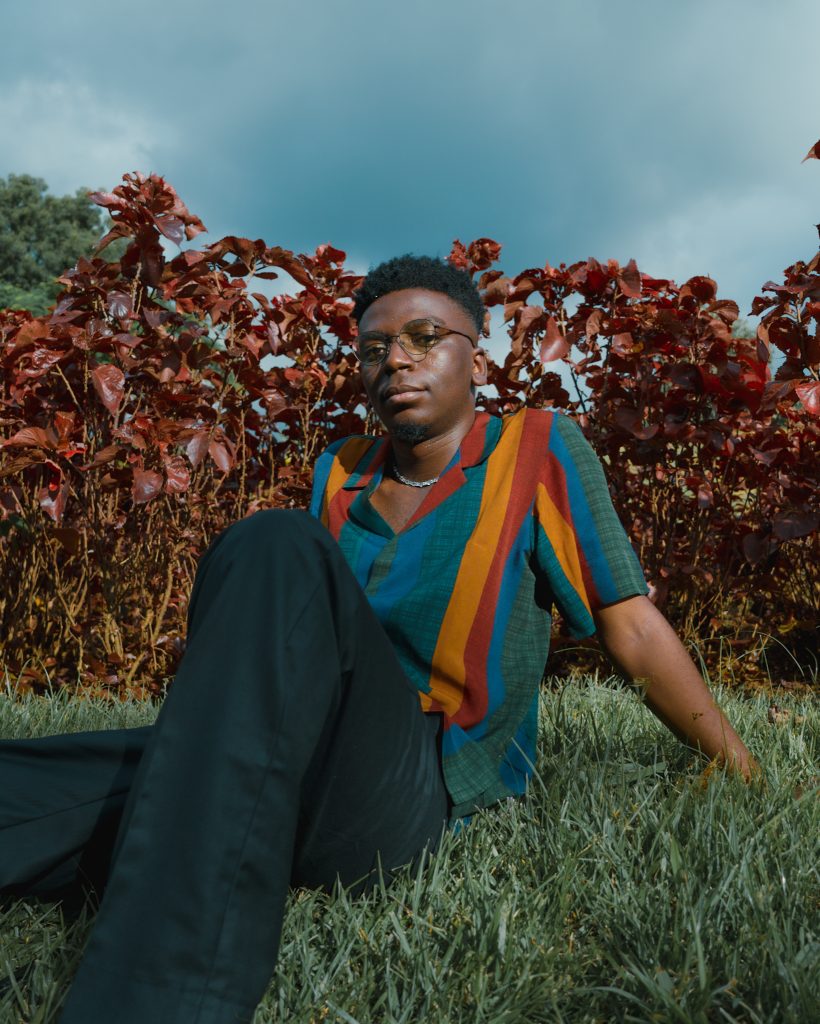
A&R Duty, the trailblazing independent A&R platform in Africa, proudly announces its partnership with the remarkable music producer, Joshua Abba Jeremiah, famously known as “Hit sound,” for an audacious Guinness World Record attempt. Together, they will embark on the journey to break the record for the Longest Recording Marathon, an electrifying challenge that will span an incredible 72 hours and feature over 30 artists. This historic event will kickstart on September 21st and culminate on the 23rd, captivating audiences around the globe.
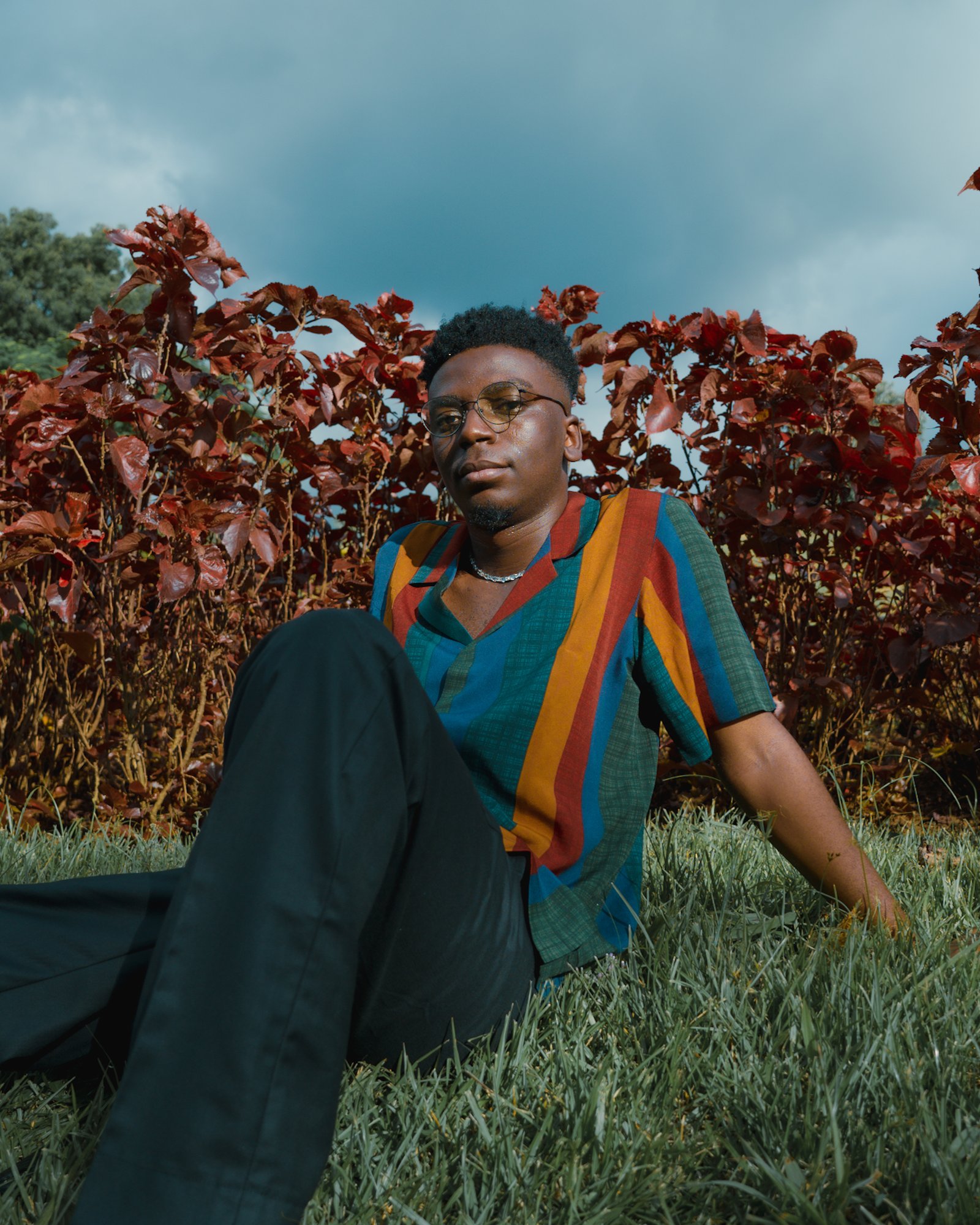
At A&R Duty, we believe in unlocking the full potential of artists and propelling their careers to new heights. As the first independent A&R platform in Africa to hire professional A&R, we constantly strive to redefine industry standards and empower artists with the knowledge and connections they need to succeed. Our partnership with Hit sound is a testament to our commitment to excellence and innovation.
Joshua Abba Jeremiah Professionally known as “Hit sound” is a Nigerian Record Producer, Songwriter, Youtuber & Entrepreneur from Kogi state, Nigeria.
He diversifies in various genres, mainly Afro beats, Dancehall, and Afropop music. Growing up in a music-inclined family, Hit sound began a music career in early secondary school before taking the big step of making a successful music production career while making industry moves. With a successful online music production career, Hit sound has immersed a wide fanbase of thousands over the years on YouTube and popular streaming platforms via his consistent release of Type Beats and Instrumentals with a wide daily increase in following and subscribers. Ranking at a top spot in a new wave of Afrobeat marketing and digital production mastery.
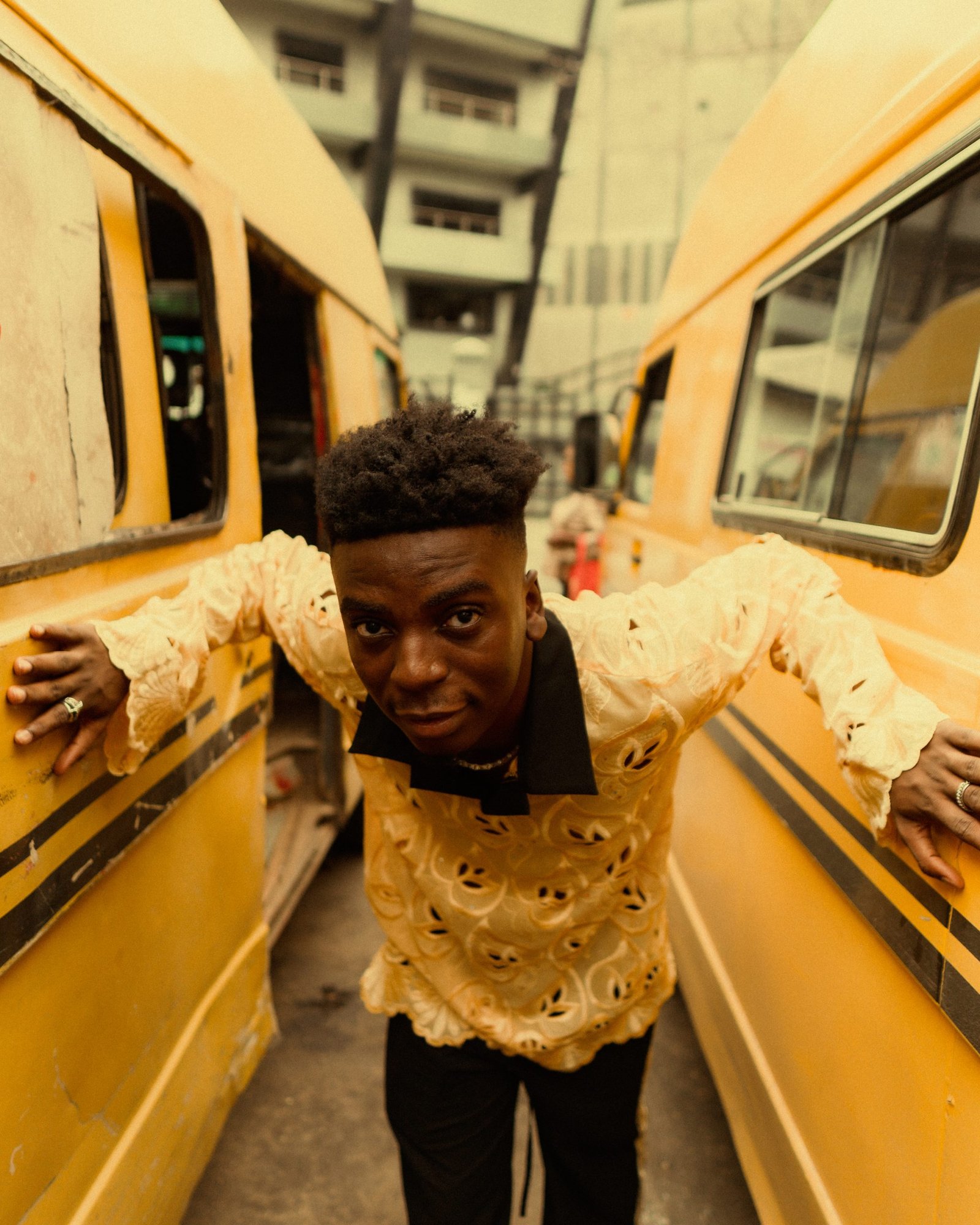
Hit sound’s aspirations extend far beyond personal success. His vision is rooted in recognizing and honoring the immense talent of Nigerian music producers, both established and emerging. This Guinness World Record attempt is not simply about breaking a record; it’s about giving recognition and flowers to these talented individuals, showcasing the power and influence of music in transcending boundaries and fostering collaboration within the industry.
During this record-breaking attempt, Hit sound will orchestrate a continuous recording session, pushing the limits of endurance, creativity, and collaboration. With each artist bringing their unique style to the table, this marathon will not only make musical history but also create an unparalleled sense of unity and camaraderie among musicians.
The current Guinness World Record for the Longest Recording Marathon with multiple artists stands at an impressive 40 hours and 19 minutes. Hit sound Producer aims to surpass this milestone, demonstrating his unwavering dedication to his craft and amplifying the voices of music producers in Nigeria and beyond.
We invite music enthusiasts and supporters of the arts to join Hit sound and A&R Duty on this extraordinary journey. Witness the breaking of barriers, the making of history, and the creation of music that resonates with the soul. As Hit sound embarks on this epic recording session, stay tuned for updates on this ground-breaking endeavor, and be part of the movement shaping the future of the music industry.
For media inquiries and more information, please contact:
Farotimi Damilare
Talent Relation officer
support@yellowgreen-octopus-387949.hostingersite.com

Nigeria’s music industry is growing rapidly, with a diverse range of music genres and talents. This has created a lot of opportunities for entrepreneurs and investors looking to get involved in the business side of music in Nigeria. Here are some of the music business opportunities available in Nigeria:

In conclusion, Nigeria’s music industry is full of opportunities for entrepreneurs and investors looking to get involved in the business side of music. Whether you’re interested in music production, artist management, record label management, music publishing, music promotion, music equipment sales and rental, or music education, there are many ways to get involved in the music business in Nigeria.


A strong marketing strategy can help you succeed as a musician. In this article, we’ll discuss seven steps to achieving your music marketing goals and show you how to put them all together into a cohesive plan that will take your career to the next level.
You don’t have to be a rocket scientist to know that setting goals are an effective way to achieve your aims. But did you also know that if you don’t set specific, measurable, and achievable goals, your chances of success are reduced dramatically?
You can use the SMART method when setting your music marketing goals: S stands for Specific; M means Measurable; A is Achievable; R signifies Relevant; T represents Time-bound (specific).
For example, “I want to get 100 plays on SoundCloud” is not a good goal because it’s neither specific nor measurable. “I will work out 5 times every week over the next month” would be much better as it’s both specific and measurable (and also achievable).
Now that you have a clear goal in mind, it’s time to determine who your audience is. Who do you want to reach? What kind of music do they listen to? Are they likely to be on Facebook or Twitter? How old are they? What genre of music are they interested in hearing?
What makes this step so important is that if you don’t know who your potential customers are, then how can you market yourself effectively? In order to find out who these people are and where they hang out online (and offline), I recommend doing some research with Google Analytics. This information will help guide you through the rest of this process.
The next step is to research what others are doing, which includes your competition but also other musicians in your genre and bands in your area or scene. Look at their websites, social media accounts, and videos. If they have a YouTube channel or any online presence, check that out too! Not only will you learn from their successes (and failures), it will give you ideas for ways to promote yourself as well.
The tone of voice is the personality of your brand. It’s how you speak and what you say, but it’s also about how you present yourself in text and images on social media.
You want to be authentic, consistent, and unique so that people can identify who you are. Your tone should be relatable too; if someone hears an artist they like when they listen to yours, that’s a huge win!

After you’ve done your research and tested your niche, the next step is to choose which marketing strategy will work best for you and your music. This may mean choosing one or all of these options: social media, blogs, email marketing campaigns, and more. You’ll need to keep in mind that not all of these channels are going to be right for every artist or project—you’ll have to decide what’s best for you! Choosing an appropriate channel means taking into consideration factors like whether or not it suits the type of music you’re creating (for example: if you’re releasing an acoustic album with heart-felt lyrics about love lost, Instagram probably isn’t going to be an effective choice). You should also consider how much money is available for marketing efforts as well as who your target audience is since this will influence which channels might work better than others. Finally, don’t overlook personal preferences either; even if another person thinks something “should” be done differently/better/more often than they do doesn’t mean it’ll actually work out well when applied within their own context so make sure whatever works best fits within both criteria before moving forward with any decision-making process here!
As in any business, you have to know how much money you can spend. You can’t just throw it out there without a plan. You will need to figure out your budget and determine how much of that budget should be allocated for marketing purposes. If possible, I recommend putting aside at least 20% of any revenues generated from your music sales or performances for marketing and promotion purposes.
Once this is done, devise an action plan and create a marketing plan, content calendar, and social media calendar that includes specific strategies and tactics for reaching all audiences (including fans, promoters, bloggers/media outlets). This will ensure that no stone goes unturned when it comes to spreading the word about what you do!
Monitoring and adapting your plan is the most important step in this process. It is also the step that many musicians skip, which leads to many problems later on.
You need to constantly monitor your progress so that you can adapt your plan as necessary. You may find that one of your goals will take longer or shorter than anticipated, or that there are unforeseen roadblocks in front of you that make it impossible to achieve the goals on time.
If you don’t monitor your progress, these problems can cause a domino effect and derail everything else in your plan. For example: if one goal isn’t working out because of unforeseen circumstances (e.g., there’s bad weather), then other parts of your strategy might not work either because they depend on achieving that first goal (e.g., booking gigs). If monitoring and adapting fail at any point along the way, chances are high that everything else will fail too—and all for nothing!
No matter what level you’re at in your music journey, you can use these seven steps to create a plan for marketing your music. If you’re just starting out and need help getting started, this is the right place for you!
If you’ve been working on building an audience and have some traction, but want to take things up a notch, this is also the right place. In fact, it may be even more important if you already have an audience because otherwise how will they know what kind of content they should be sharing with their friends? They won’t! This is where step one comes in: Ask yourself: What’s my goal?


When you’re writing songs with other songwriters, there are two documents that you should be familiar with: a collaboration agreement and a split sheet. The purpose of both is to help everyone avoid any confusion or conflict when collaborating on music. This article will look at what these are and how they can help keep your creative process happy and harmonious!
You can create an agreement or contract on your own and not get a lawyer to write it up – lawyers charge a service fee. But if you don’t have a lawyer, it’s not recommended that you create your own contracts.
You could ask another musician or producer to create the contract with you—this is called a collaboration agreement. If the two of you agree to split the profits in whatever way makes sense for both sides (50/50, 60/40), then this type of arrangement can work well without hiring a lawyer.
However, there are pitfalls when trying to draft something yourself: liability issues may arise from conflicting terminology or ambiguities in language; lack of clarity in what type of relationship exists between parties; lack of clarity regarding ownership rights; etc… So unless you’re very familiar with music law (which most people aren’t), this route isn’t necessarily recommended either – especially since there are free templates available online which will do most everything needed for standard agreements between musicians/producers that are produced by record labels.
The term “split sheet” usually refers to one of two kinds of agreements. The first is a songwriter’s collaboration agreement, which is a contract that is signed by the writers of a song before they write it. The second type of split sheet is created after the song has been written and signed by all parties involved in its creation, dividing up ownership and royalties evenly between them.
Split sheets are generally easy to understand if you know how they work: each party agrees on how much they’re going to share in terms of owning the song (for example, 50% owner), publishing rights (for example, 75% publisher), or any other part of its production or distribution that could be negotiated like this.
A songwriter’s collaboration agreement is a contract that is signed by the writers of a song before they write it. The purpose of this document is to ensure that everyone involved in the creation process understands how their work will be used, who will get paid, and when.
Collaboration agreements are created before a song is written. A writer’s collaboration agreement is a contract between two or more writers (songwriters), who agree to work together on a specific piece of music.
Split sheets are created after a song is written. Once you’ve written the song, you create what’s known as a “split sheet.” In other words, a document that states who owns what percentage of the song. split sheets usually divide the ownership evenly between co-writers, but you can agree on any percentage splits you want (though I would suggest NOT making any one writer’s ownership less than 33%).
Split sheets are created after a song is written. Once you’ve written the song, you create what’s known as a “split sheet.” In other words, a document that states who owns what percentage of the song. Split sheets usually divide the ownership evenly between co-writers, but you can agree on any percentage splits you want (though I would suggest NOT making any one writer’s ownership less than 33%).
The split sheet should be signed by all parties and filed with your PRO (if there is one in your town), so it’s best to have it completed before anything else happens with this new tune!
A split sheet should be created and signed by all co-writers of a song before any publishing deals are made. This document is essentially an agreement between co-writers that outlines how they will share revenue from the song in question. For example, if you wrote some lyrics but someone else wrote most of the music, then you would have less stake in the copyright ownership than they do, and vice versa. A split sheet is a way to ensure that everyone involved with creating this particular song gets what’s fair for their contributions to it.
As mentioned above, an even split between all participants on the creative side is often preferred because it allows each party to retain full control over his or her publishing and copyright interests; however, sometimes this isn’t possible due to pre-existing publishing deals that were entered into before this song was created (e.g., one person owns all rights when he writes something alone). In these situations as well as others there may be other considerations like whether or not we’re talking about a single person who has multiple pseudonyms (e.g., “Dr. Luke vs Kesha”) or whether or not everyone involved with creating


If you want to be successful in your music career, you need to know how to create an effective marketing plan. A marketing plan is a tool that can help you organize all of your promotional activities, set goals, and measure your progress as time goes on. It also helps keep you focused so that you don’t get overwhelmed by everything that needs doing.
Before you can create a marketing plan, you need to know who your audience is and what they like. This will help you determine how best to reach them and keep them engaged with your music. It’s also important that you understand their age group, gender, location, and more so that when it comes time for the actual execution of this plan (step 4), everything runs smoothly.
Most importantly though: don’t forget about their emotional state! The music industry is always changing so having empathy for where people are emotional helps us stay relevant as creators in today’s world of constant change.
The second step to creating an effective music marketing plan is to plan for the long term.
This may seem obvious, but it’s important to remember that you shouldn’t be thinking solely about what you need to do this month or even this year. You should also consider your goals for next year, and maybe even further down the line–as far as five years from now!
For example: If you have a new album coming out in 2020 and want it to be successful enough that people still talk about it in 2025 (and beyond), then planning how best to market that album now will be crucial when those dates roll around.
In order to know whether or not your marketing efforts are working, it’s important to keep track of where you’re at. You should know how much money has been spent on each campaign and what kind of results have come from those campaigns. This will help determine if a given strategy is working or not so that future strategies can be tweaked accordingly based on what has already been tried.
Keep track of the following:
The next step is to set a goal for your music marketing plan. A goal is something you want to achieve, so it’s important that you have one in mind before beginning the process of creating your plan. For example:
Step 5: Create a list of marketing tactics to use.
You should have everything you need the order to create your own music marketing plan by this point, but if not, here’s what you should do next:
A music marketing plan is an essential part of creating a successful career in music, particularly if you are just starting out and don’t have much money to spend on ads and promotions.
It’s important to note that there is no one right way to create a plan; every artist has their own unique situation and will need to approach their marketing differently. That said, here are five steps that can help guide your strategy:
A music marketing plan is an essential part of creating a successful career in music, particularly if you are just starting out and don’t have much money to spend on ads and promotions. It may seem like a lot of work, but the payoff will be worth it in the long run!